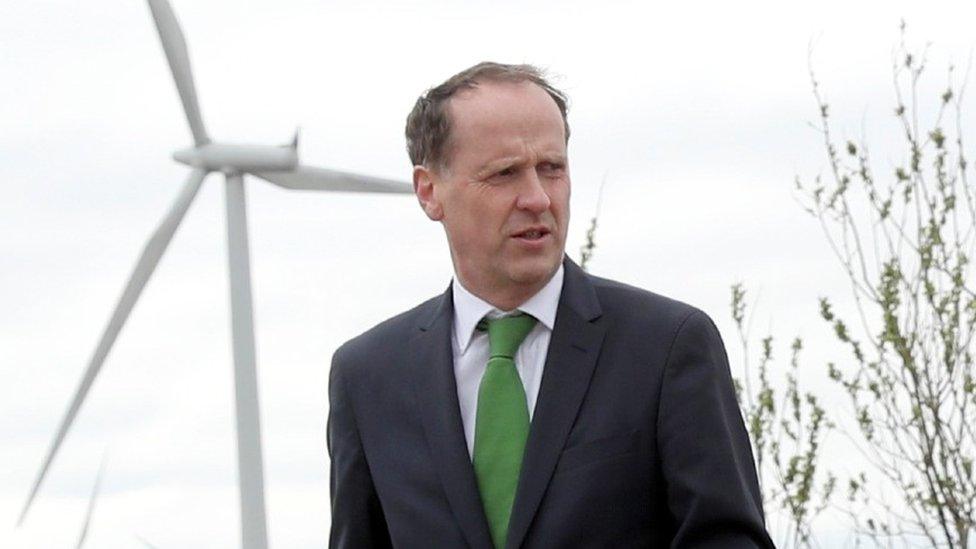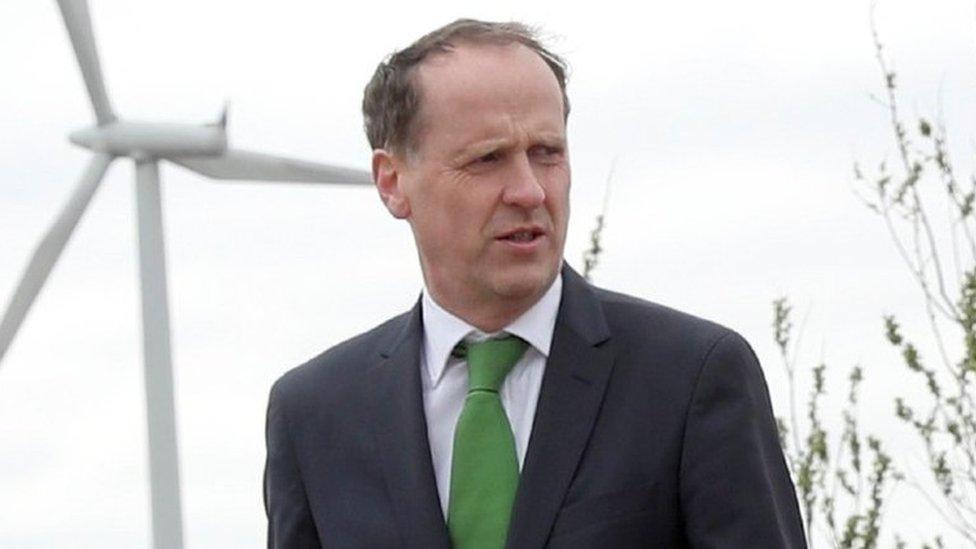Scottish Power boss: Households living in genuine fear of bills
- Published

Scottish Power chief executive Keith Anderson said the "tough conditions" for UK households were due to get far worse
The UK government needs to double its support for households as energy bills rise "off the charts", the boss of Scottish Power has said.
Chief executive Keith Anderson said people were feeling "genuine fear" that they would not be able to pay bills.
Consultancy Cornwall Insight has warned that energy bills for a typical household could hit £4,266 next year.
The UK government has already announced £37bn of support for households, but is under pressure to do more.
Ministers promised in May that £400 of support would be paid to all households, with up to £1,200 for the most vulnerable.
Mr Anderson said: "People's concern about how they're going to make ends meet when the price cap goes up at the start of October is palpable, and turning to genuine fear."
He warned that the "tough conditions for UK households are going to get much, much worse before they get better - and are going to endure for longer than any of us could have expected".
Scottish Power supplies energy to households in central and southern Scotland, as well as parts of England. A protest against rising energy costs was held outside the company's Glasgow HQ on Friday.
The UK's energy regulator Ofgem will announce the latest price cap for energy bills on 26 August, with the changes due to take effect from 1 October.
The call for more household support comes days after energy bosses - including Mr Anderson - met with Prime Minister Boris Johnson and other Cabinet members to discuss the crisis.
However, the meeting appeared unfruitful, with the government saying it would not make any major decisions until the new prime minister is installed early next month.
Rishi Sunak and Liz Truss - who are battling it out to be the next Conservative leader - have both set out what they would do, but have ruled out extending the current windfall tax on energy company profits.
'Pandemic-scale' support
Labour leader Sir Keir Starmer has said families would "not pay a penny more" on their energy bills this winter under his party's plans to tackle rising living costs. The package would be paid for in part by a big increase in tax on oil and gas company profits.
Mr Anderson said the government needed to look to the "lessons of the pandemic" to offer support on a size and scale needed to see households through the "worst of the pain this winter" and over the next two years.
"Alongside other support measures, the government could set up a deficit fund to cover the difference between what people pay and how much it costs to supply their homes with gas and electricity," he said.
"The fund could be underwritten by the government, or a willing financial institution, and repaid over a 10 to 15-year period to smooth out the costs.
"We can use the time to speed up investment in cheap green energy, to cut energy use and emissions by more ambitious energy efficiency programmes, and to make progress in delinking electricity prices from gas, to better reflect the use of cheaper green energy in our mix."


How are you dealing with the rising cost of living? You can let us know your tips and hacks for saving money on things like energy, food and transport. You can also send us any cost of living questions you want us to help answer.
In some cases your question will be published, displaying your name, age and location as you provide it, unless you state otherwise. Your contact details will never be published. Please ensure you have read the terms and conditions.
If you are reading this page on the BBC News app, you will need to visit the mobile version of the BBC website to submit your question on this topic.
- Published9 May 2022
- Published19 April 2022
